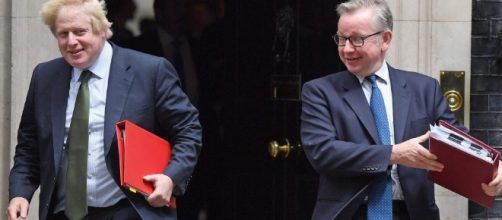Following the Conservative's unexpectedly poor performance in June's General Election, Theresa May's approval rating has plummeted to just -5, as voters increasingly back Labour's "anti-austerity" policies.
Boris Johnson has become the latest prominent Conservative MP to voice his concern. Since the introduction of the cap in 2013, public sector worker's living standards have decreased, as their pay has not risen in line with UK inflation rates — currently recorded as 2.9% as of May 2017. The Secretary of State for Foreign Affairs is said to "strongly believe" that the cap could be lifted "without causing fiscal pressures" according to a Whitehall source speaking to the BBC.
Johnson's intervention in the debate echoes recent statements made by cabinet colleagues Michael Gove, Jeremy Hunt, Damien Green and Justine Greening, who are all calling for long-standing austerity measures to be relaxed.
Liberal Democrat and political analyst Jonathan Fryer outlines the consequences of the pay cap: "These professions are under a lot of stress and (retaining the pay cap) will only make it worse. Thousands are leaving the teaching profession. Nurses are leaving the NHS at an unprecedented rate. We already rely heavily on nurses from the EU - applications have stalled in the wake of Brexit. There needs to be an improvement in the situation otherwise we shall likely see a crisis in the recruitment and retention of public sector employees."
While the government are not legally obliged to follow independent advisory bodies recommendations regarding public sector pay, Fryer suggests their findings be taken seriously by the Tories, as they "reflect the opinion of the public, the realities of people working in the sector and the likelihood of retaining them." He adds: "May's position has been considerably weakened recently, particularly since she found £1billion for the DUP in order to remain in power.
Many may well ask, "why not find money for nurses? Teachers?"
IFS cost scrapping pay cap at £6.3 billion
Whilst Labour's attempt to lift the cap on public sector pay has gained support across the political spectrum, Jamie Whyte of the Institute for Economic Affairs questions where the money for the workers- estimated by the Institute for Fiscal Studies as £6.3billion required- would realistically be found." An increase in spending would be almost certainly be funded by government borrowing. Government debt is already at around 85% of Britain's GDP and getting higher. The burden will greater and greater. We simply have to cut spending somewhere." In Whyte's opinion, the freeze on public sector wages has had some economic benefits: "The cap on salaries has kept the cost of employing people down and enabled businesses to retain employees.
The employment rate is high as a result of this. The economic interests of the country would not be well served by (increased government spending). May should stick to her guns."
Labour's Jeremy Corbyn accuses Tory MPs of "hypocrisy"
After Labour's defeat last Thursday in the Commons, party leader Jeremy Corbyn today accused the Tory Mps challenging the pay rise cap of "hypocrisy", questioning their apparent change of heart. Downing Street´s spokesman stated on Monday afternoon, "The position is exactly as it was set out last week, in that there are pay review bodies reporting. We have responded to some, and we will respond to others in due course, as is normal later this year.", despite the government publishing a report, "Wage Growth In Pay Review Body Occupations", finding on average that public sector salaries have decreased by 5.8% in real gross hourly terms between 2005 and 2015.


